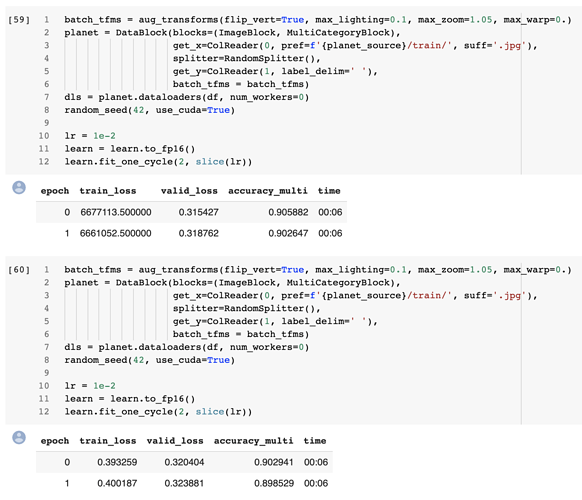I would like to be confident of measures between different settings and models. However, even when initializing all the seeds I know about, training loss varies between identical runs.
def random_seed(seed_value, use_cuda): #gleaned from multiple forum posts
np.random.seed(seed_value) # cpu vars
torch.manual_seed(seed_value) # cpu vars
random.seed(seed_value) # Python
if use_cuda: torch.cuda.manual_seed_all(seed_value) # gpu
random_seed(42,True)
data = ImageDataBunch.from_csv(csv_labels=LABELS, suffix='.tif', path=TRAIN, ds_tfms=None, bs=BATCH_SIZE, size=96).normalize(imagenet_stats)
data.show_batch(rows=2, figsize=(96,96))
learn = create_cnn(data, arch, metrics=error_rate) #resnet34
lr = 1e-2
learn.fit_one_cycle(1, max_lr=lr)
The training losses for three runs are: .168973, .169944, .167258
Images displayed by show_batch appear to be in the same order and look identical (to the eye).
So what’s going on? It seems that if all the seeds are initialized, the results should be equal. A 1% variation over a single epoch is enough to affect my confidence in comparing various settings.
Could there be randomness in the GPU calculations? Or something related to CPU cores?
Thanks for any insight and advice.
fastai 1.0.30
Nvidia 1070

